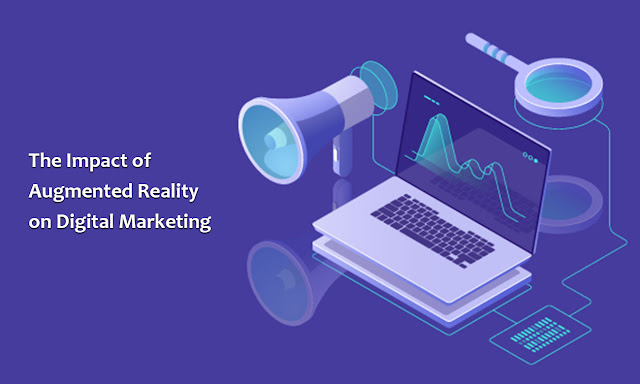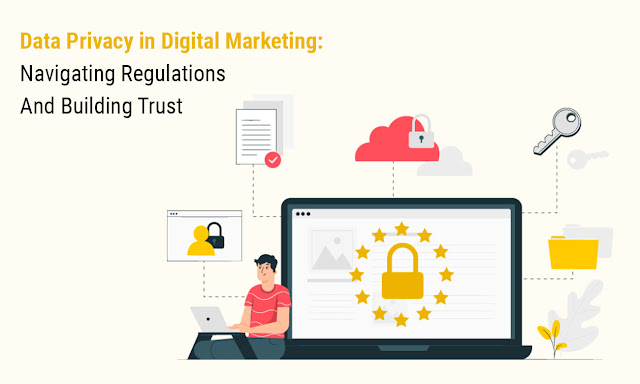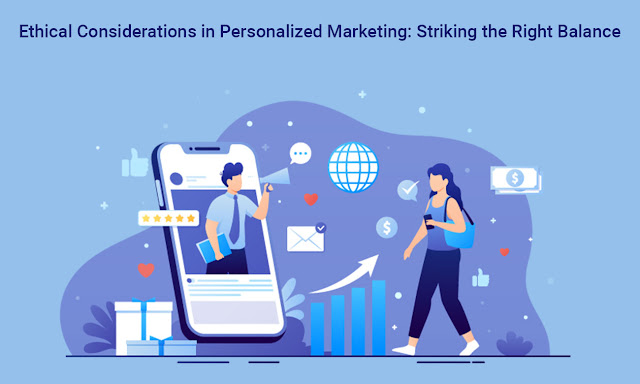The Impact of Augmented Reality on Digital Marketing
Augmented Reality (AR) is a technology that overlays digital elements, such as 3D models or information, onto the real world, enhancing the user's experience. This technology is particularly relevant in the field of Digital Marketing, which involves businesses spreading the word, making connections, and selling their products or services online. AR is transforming the way businesses create experiences that feel like pure magic, making it a powerful tool in the digital marketing landscape. This blog aims to uncover how AR is changing the game for digital marketing, transforming it from just selling products to creating immersive experiences. This journey into the future of marketing will see AR taking center stage.
Understanding Augmented Reality
The term "augmented reality" (AR) refers to technology that blends virtual or useful features, 3D characters, and other digital aspects into the real world. Over time, it has seen tremendous evolution, going from fundamental ideas to astounding breakthroughs. With well-known apps and gadgets like Pokémon Go, which allows users to pursue virtual animals in real life, and Snapchat filters, which transform individuals into adorable animals, augmented reality (AR) has become a vital part of our tech-savvy lives. Among the amazing gadgets that enable these experiences are AR glasses. With AR, we can now fully immerse ourselves in our everyday activities, making it an indispensable aspect of our tech-savvy life. Its development and growth path has served as evidence of both its potential and its influence on our lives.
The Integration of AR in Digital Marketing
AR (augmented reality) is revolutionizing digital marketing by enhancing customer engagement through interactive product experiences, virtual try-ons, and personalized marketing campaigns. It allows customers to interact with products before making a decision, making online shopping more personal and fun.
Another benefit of AR is the ability to create targeted ads that respond to users' interests and preferences, allowing marketers to tailor content based on user preferences. This can be seen in travel apps suggesting destinations based on users' interests or clothing stores showing outfits that match their style.
AR-powered storytelling allows brands to weave immersive narratives by layering digital elements onto the real world. This adds a new dimension to how brands communicate with their audience. For example, AR guides can tell stories about monuments as users explore a historical city, adding a new dimension to their communication.
Lastly, AR allows brands to create virtual showrooms and guided tours, allowing customers to have the world at their fingertips. This makes AR not just a tool for marketers but a gateway to a more personalized, engaging, and immersive experience for customers in the digital realm.
Benefits of AR in Digital Marketing
AR in digital marketing offers numerous benefits, including increased customer satisfaction, building trust and brand loyalty, and boosting sales through immersive marketing. By providing interactive and enjoyable experiences, AR allows customers to taste products before making a purchase, making the shopping process more enjoyable. It also helps in making the decision-making process more informed, leading to higher conversion rates.
Immersive marketing goes beyond traditional methods, creating memorable and shareable moments for users, which attracts attention and drives conversion. By creating memorable and shareable moments, AR marketing goes beyond traditional methods and attracts more customers.
Data-driven insights are also provided by AR, allowing marketers to analyze user interactions for better targeting. This data helps create targeted and personalized marketing campaigns that resonate with the audience. AR data also allows marketers to refine their strategies based on user behavior within AR experiences, ensuring that every campaign is more effective and aligned with customer preferences.
The benefits of incorporating AR into digital marketing go beyond the immediate wow factor, focusing on creating lasting impressions, driving conversions, and using data to continually refine and improve marketing strategies.
Challenges and Considerations
AR (augmented reality) is a powerful tool that can revolutionize marketing by providing immersive experiences. However, it also presents challenges. Device compatibility and accessibility are crucial, as not all devices are created equal, leading to a fragmented user base. Creating AR content requires a blend of creativity and technical expertise, from 3D modelling to coding. Marketers must find skilled professionals and invest in ongoing efforts to keep the content fresh and engaging. Privacy and security concerns are also significant, as AR applications often collect sensitive user data. Marketers must ensure robust security measures to protect this data from unauthorized access or breaches. The ethical use of AR in marketing is also crucial, as it can blur ethical lines if not handled responsibly. Marketers must avoid intrusive tactics, be transparent about data usage, and obtain clear user consent. A strategic approach is needed to navigate these challenges, ensuring a positive and trustworthy user experience.
Future Trends and Opportunities
Emerging technologies in augmented reality (AR) are set to significantly amplify the capabilities of AR, including AR Cloud Technology, which connects the physical world with augmented reality, and 5G Connectivity, which enhances the speed and connectivity of AR experiences. These technologies will reshape the landscape of digital marketing, allowing marketers to delve deeper into hyper-personalization and fusion of AR and social commerce.
Marketers should consider investing in AR talent and technology, building a team with AR expertise or partnering with AR agencies to leverage the latest AR advancements effectively. Experimenting with AR storytelling is crucial for creating unique and memorable brand experiences. Marketers should also stay agile and adaptive, continuously monitoring emerging technologies and consumer behaviors to stay relevant in an ever-changing AR marketing landscape.
Ethical considerations are also crucial as AR becomes more integrated into daily life. Marketers should prioritize transparency, user consent, and responsible use of data to build trust and goodwill. By embracing emerging technologies, anticipating advancements, and staying agile, marketers can position themselves at the forefront of a dynamic and ever-evolving landscape.
The transformative role of AR in digital marketing is a paradigm shift that demands creativity, adaptability, and ethical responsibility from marketers. Those who embrace the transformative potential of AR will not only stay relevant but also lead the way into a new era of marketing innovation and customer engagement.




Comments
Post a Comment